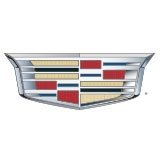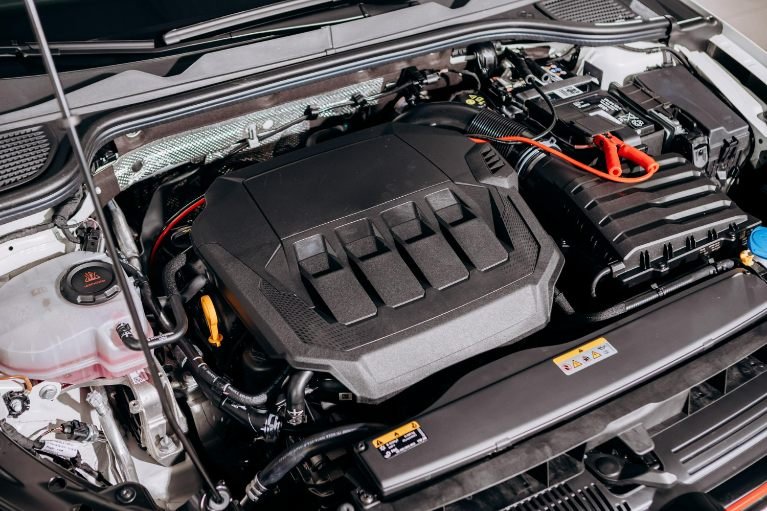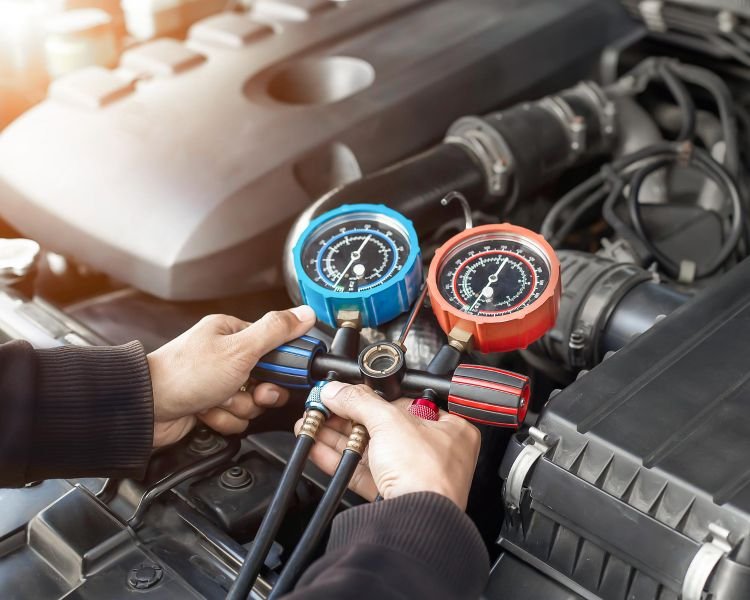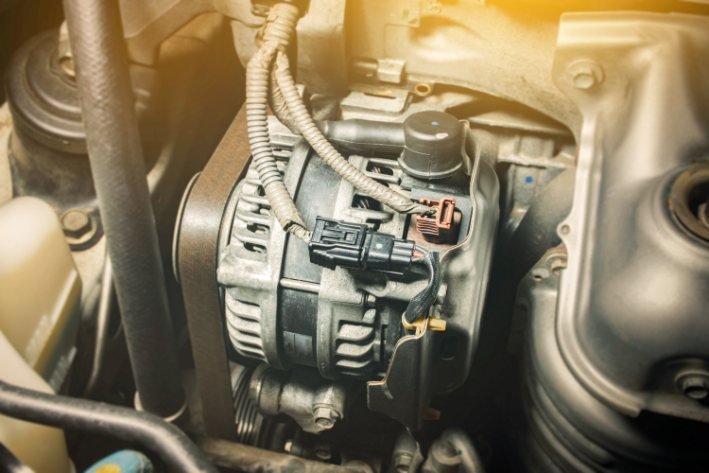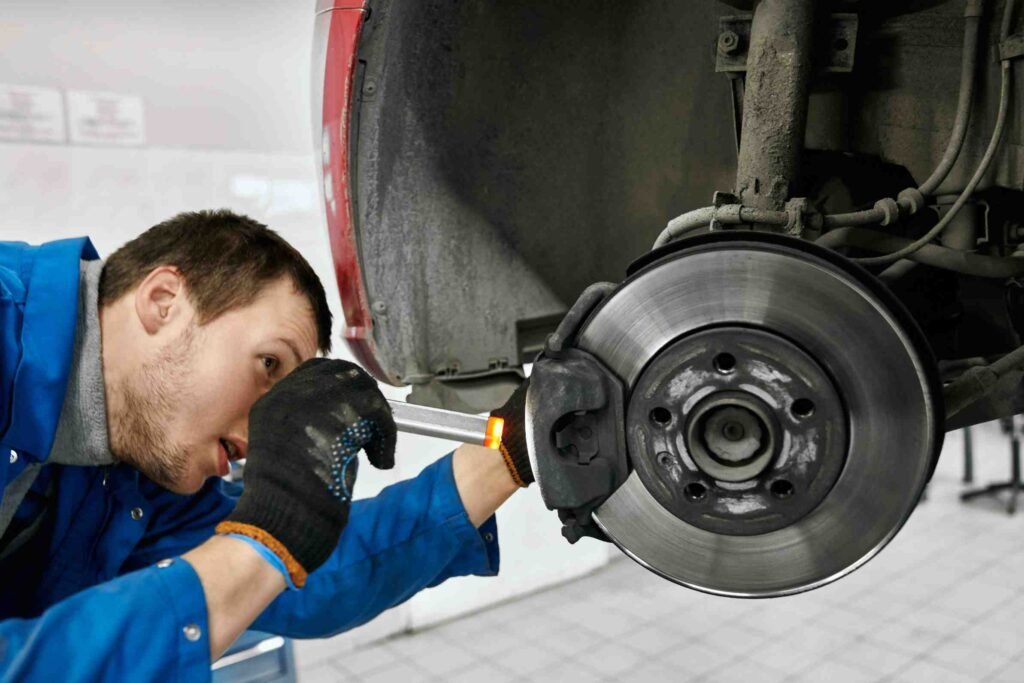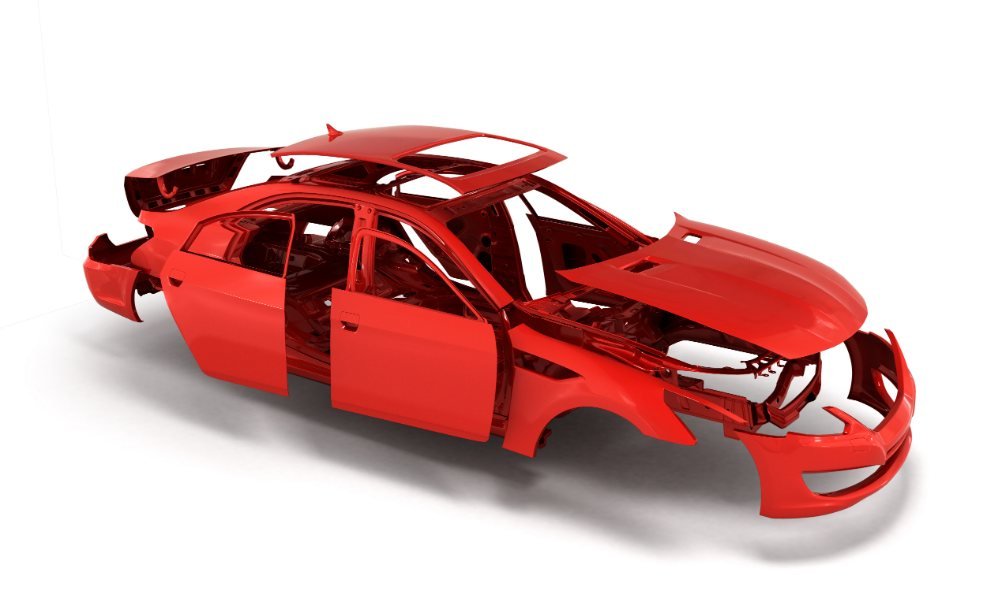Condenser
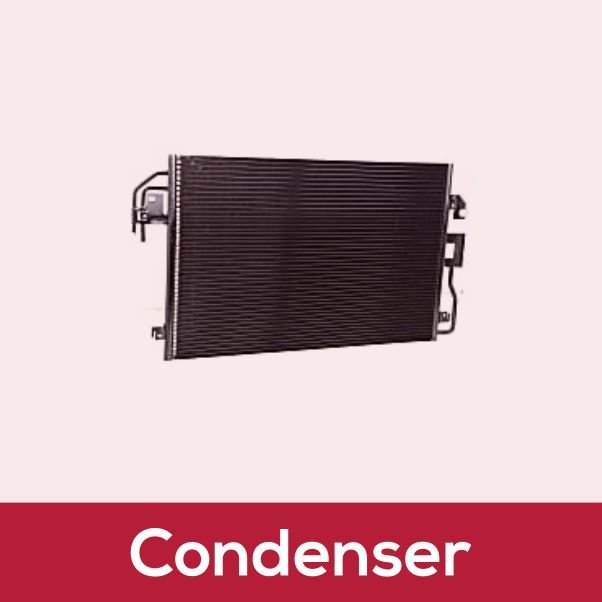
Condenser is an important part of a car’s air conditioning system. Converting the refrigerant coming from the compressor from a high temperature, high-pressure vapour into a high-pressure liquid through condensation is the main function of a condenser. Too many words and it feels like a science class?? Don’t worry!! We have got you covered. Today in this article we will learn all about condensers, their functionality, and the reasons behind their failure.
The condenser is served as a heat exchanger. They are constructed as a series of tubes with fins around them and aimed to release heat. It is positioned between the car’s grille and the radiator for the motor. The refrigerant is converted from a gas to a liquid in the condenser.
How does a condenser work?
The working principle of a car condenser is that when the refrigerant enters the evaporator, the pressure decreases, and changes from high-pressure gas to low-pressure gas. The surface temperature of the evaporator is quite low since this process has to absorb heat, and then through the fan, the cold air can be expelled. Then it evaporates through a capillary tube and evaporates in an evaporator. The performance of the condenser directly affects the refrigeration performance of your car’s air conditioner.
Recommend Read: AC Compressor: An Important Part of Your Car
Signs that it's time for you to replace the condenser
1. Air does not blow cold
The air will be warmer than you want.A defective condenser is undoubtedly one of the many problems that can cause an A/C system to not blow cold.
2. Leaking refrigerant
The air conditioner won’t blow out much, for any chilly air if the refrigerant leaks. To begin with, refrigerant is green and mostly leaks as a gas, but depending on where the leak occurs, it may sometimes emerge as a liquid near the condenser. While many individuals are aware of the signs of common fluid leaks, finding refrigerant leaks can be more difficult. By mixing a UV dye with the refrigerant, these leaks can be found.
Obvious signs of a refrigerant leak include:
1.A/C’s ability to produce cold air is reduced
- Hissing sounds from condenser
- Some parts of the unit are starting to frost over
3. Burning smell
If you are activating the air conditioning system even though it’s not working properly, there can be side effects. One of the major side effects is that A/C components start to overheat. Sometimes this temperature can lead plastic and other components to melt. This melting will release a burning smell. Until you are done with repairs better keep the A/C off. Otherwise you are risking your vehicle catching on fire.
4. Dashboard warning lights
Old cars don’t have any dashboard warning lights for A/C problems but some newer cars do have them. If your A/C light is on it’s an indication that your car’s A/C condenser is probably damaged and needs fixing.
5. Vehicle overheating
So when the condenser stops functioning properly, it can quickly reach extremely high temperatures. While these high temperatures can cause various parts to melt, become damaged, and your car to overheat.
6. Electrical glitches
Electricity powers the motors inside the condenser that run the fan and compressor. These crucial components may cease functioning, fail to switch on, or otherwise obstruct the cooling process due to issues with capacitors, wiring, or electrical relays.
With regular maintenance and checkups, your A/C condenser should last longer but the average lifespan of a condenser is 10 to 20 years.
Below we are listing when it is that you need to repair your condenser and when you need to replace it.
Problems that can be solved by repairing
1. Fan problems
The huge fan in the AC condenser may malfunction or perhaps stop working altogether due to blown capacitors, bent blades, or motor problems.
2. Condenser is dirty
Condenser should be cleaned thoroughly to keep the dirt from interfering with it. Condenser coil should also be cleaned regularly to improve its functioning.
3. Faulty motor and malfunctioning capacitor
Motor and capacitor replacement can eventually improve the condition of the condenser.
Problems that can be solved only through replacement
- Blockage
Major blockage in air conditioning systems usually requires condenser replacement. Based on the extent of damage other components may need replacement as well.
- Excessive leaks
Since it is impossible to replace individual condenser tubes or seals, the only real way to stop severe leakage is to replace the entire condenser.
- Damaged coil
While it is possible to repair a condenser coil, doing so is expensive and time-consuming. The cost-effective alternative is typically to replace the entire AC unit unless the coil is still covered by warranty.
How to take care of the condenser?
Regular maintenance is the best approach to keep the car air conditioner condenser from sustaining damage. The condition of the car condenser can be better maintained by conducting regular inspections every three to six months.
Additionally, you might want to check to see if the condenser is free of dust and debris. This can be achieved by often washing it with water. In order to avoid easily denting the condenser fins, the water pressure must be adequately managed when spraying the condenser.





















